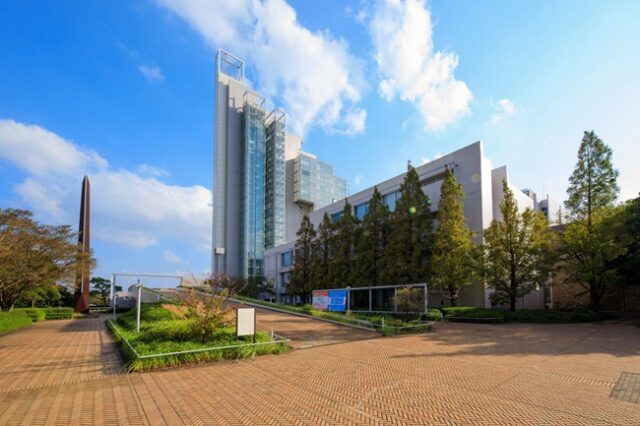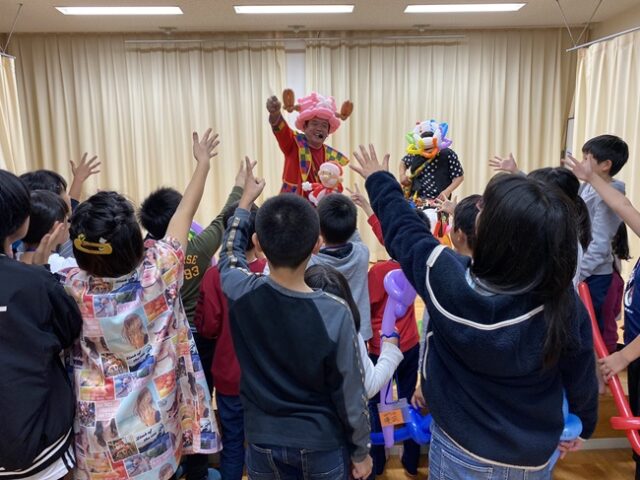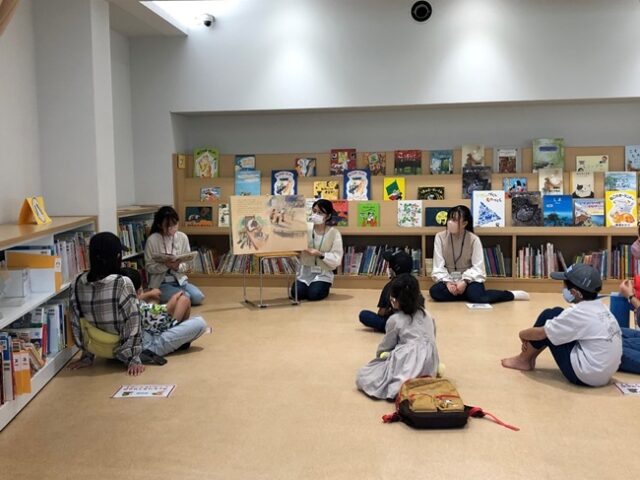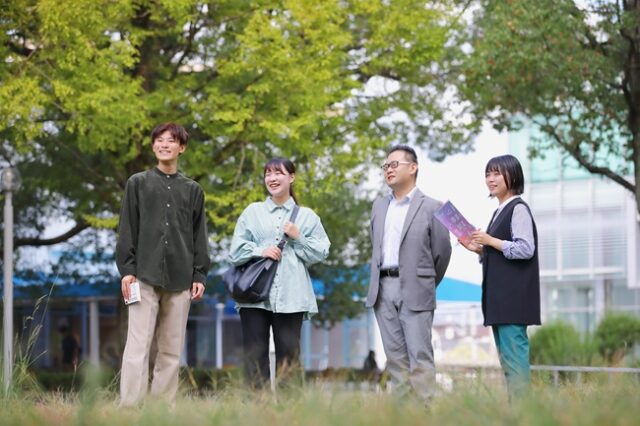Universities these days are required not only to provide education, but also to contribute to the local community. Kitakyushu City University is one of the universities that has been quick to place importance on contributing to the community and have established a foundation for it. The university connects the inside and outside of the university in a variety of ways, including the Regional Coexistence Education Center, which supports student activities, and the Regional Revitalization School, which nurtures human resources who can contribute to the community.
What kind of community contribution does Kitakyushu City University aim to make, and what kind of learning will its students gain? We spoke with Professor Akira Uchida, vice president of Kitakyushu City University (in charge of student support, employment support, social contribution, etc.).

Providing opportunities for local activities that lead to growth
Kitakyushu City University has one of its visions: ``Stepping forward with the local community.'' With the aim of helping the community and students grow together, we actively engage in community activities and practical training. Professor Uchida believes that ``we should be a university that is sought after by local people,'' and has been involved in education, research, and support for students' local activities.
One of the unique initiatives is the Community Coexistence Education Center (commonly known as 2010Lab.), which was opened in April 4. Full-time faculty and student management staff support local activities.
``Up until now, faculty and students have been involved in individual community activities, but 421 Lab. was established as an organization to support these activities on a university-wide basis. It is expected that it will be a great force in community contribution activities.It was named the ``Regional Coexistence Education Center'' with the awareness that the university lives together with the community and at the same time provides a place for education through community activities.''
421Lab. carries out projects devised by students and various activities requested by the local community. There are currently 20 permanent projects. The scope of the project is wide-ranging, including the operation of children's cafeterias, disaster prevention, local environmental beautification, and educational support for elementary schools. In addition to the approximately 400 students who are project members, the approximately 421 students who have registered with 2000Lab also occasionally participate in one-off projects.


At 421Lab., we also place emphasis on students setting clear goals for their learning. For that reason, Professor Uchida said, ``It's more than just a volunteer center.''
"The vector of 421Lab. is 'learning.' We encourage students to have growth opportunities while having contact with society. Therefore, when introducing one-off activities to students, the instructors say, 'This is about student growth.' Students are not free workers.We believe that there is no point in engaging in community activities as a university unless they lead to student growth, from preparation to reflection. Masu."
Cultivating the five strengths that form the basis of community contribution
Within Kitakyushu City University, the School of Regional Revitalization Studies has a particularly close relationship with regional contributions. Established in 2009, it has produced human resources with practical skills who can play an active role in the local community.
The School of Regional Revitalization has a curriculum that allows students to acquire the five skills that form the basis of contributing to the community. (5) Expert knowledge regarding regional revitalization and creation, (1) Skills to utilize knowledge, (2) Thinking, judgment, and expressive ability to solve regional issues, (3) Communication skills, (4) Autonomy It is the power of action. Above all, communication skills are the foundation of all activities.
``The School of Regional Development requires either a group discussion or an individual interview for the entrance exam.This is because communication skills are essential for working in an organization or society. We have created a curriculum that assumes that students have acquired the ability to make decisions to a certain extent, and that ability will naturally improve.

The curriculum of the School of Regional Revitalization includes a number of content that can improve communication skills. For example, FM radio program production training is compulsory for first-year students. A team of 1 to 5 people will form a team and create a one-hour live broadcast program. The theme is "Issues in the Kitakyushu region." The students will also come up with solutions and introduce them in the program. The program would not be possible without active communication with others, such as interviews with local residents and meetings with personalities.
Another distinctive feature is the regional revitalization training that first- and second-year students conduct jointly. Students choose one of the 1 training courses and engage in it for two years.
One example is the Ikura training. In the Ikura region, where the aging and population is declining, we will work on regional revitalization centered on agriculture. The students listened to the needs of local people and engaged in community activities that go beyond just farming, such as door-to-door sales, providing lifestyle support services, opening stalls at local festivals, and making sweet potato shochu.
Professor Uchida believes that cross-grade learning such as regional revitalization training has great advantages.
“Second-year students have a one-year difference in their track record of interacting with local people, so they can be relied upon as instructors for practical training. This is because they pass on their know-how to their juniors.Also, because new members join every year, they acquire skills such as team building and communication.The skills they gain in this way will be useful in seminars from their second year onwards. .”
What you learn through community activities will become your life's food.
Through community activities, students hone their five skills, including communication skills. Professor Uchida said with confidence that after graduation, ``the students will become people who can immediately play an active role in the local community.''
"You have already acquired the skills that form the foundation for living in society at university. After graduation, if you add more expertise in the workplace, you should be able to grow even more."
Finally, Professor Uchida suggested that students consider ``contributing to the local community'' as one aspect of choosing a university.
“I would like students to look at the university not only in terms of faculties, departments, and the qualifications they receive, but also in terms of their future lives.Our university has a wide range of fields of learning outside of the university.Community activities lead to students' own learning. So, I would like you to participate.
We would like parents to know that our university offers many opportunities for learning through community activities. Participating in these events and learning from them will help you grow, and it will also be an experience that will allow you to speak with confidence in society. It will have an impact not only on job hunting, but also on the next step up. ”
The skills and experience that you cultivated while contributing to the community during your student days will support you throughout your life. Why not consider contributing to the local community as one of the considerations when choosing a university?

